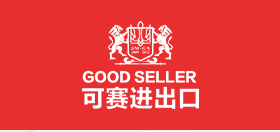Ⅰ. The tariffs imposition has a considerable impact on the development of world general merchandise products
When significant countries in the world generally raise tariffs and strengthen non-tariff barriers, not only will the number of import and export commodities of these countries be reduced, but also due to mutual influence and interaction, the number of imported commodities will be further reduced, affecting the development of international trade of general merchandise. Under the circumstance that other conditions remain unchanged, the degree of increase or decrease in tariff rates of significant countries in the world or the degree of strengthening of non-tariff barriers is inversely proportional to international trade development speed.
Ⅱ. The tariffs imposition affects the structure and geographic direction of import and export of general merchandise products
To a certain extent, tariff and non-tariff barriers affect changes in the structure and geographic direction of international trade of general merchandise products. The import tariffs on manufactured goods in developed capitalist countries have fallen more than agricultural products, and manufactured products are less affected by non-tariff barriers than farm products; the reduction in tariffs between developed capitalist countries has exceeded that on developing countries and socialist countries; the foreign trade of developing countries and socialist countries is more affected by non-tariff barriers of developed countries than developed capitalist countries themselves. These differences are an important reason why the post-war growth of manufactured goods trade is faster than the growth of the agricultural business, and the growth of trade between developed capitalist countries exceeds the development of trade between them and developing countries and socialist countries.
Ⅲ. The tariffs imposition affects the price, production, and sales of import and export of general merchandise products
1. Cause commodity prices to rise and consumers to suffer losses. After tariffs are imposed, the prices of imported general merchandise from general merchandise company will increase; non-tariff measures restrict imports and reduce the number of imported goods. Under other conditions unchanged, the prices of imported goods will also increase. The cost of the same product in the country will also increase to improve consumer spending.
2. Increase the country's fiscal revenue. Both fiscal tariffs and protective tariffs have the effect of increasing the country's fiscal revenue. Although the proportion of tariff revenue in national budgetary income has significantly been reduced, it is still one of the essential sources of fiscal revenue in developing countries.
3. Protect the country's industry and market. Imposing tariffs on imported goods will increase the cost of imported goods, weaken their ability to compete with similar interests in the country, affect the sales of imported goods, and play a role in protecting national industries and markets. The increase in the price of imported goods will drive up the cost of similar products and bring more profits to the relevant manufacturers. For exporting countries, import taxes levied by importing countries will affect the export of general merchandise, causing the reduction in export volume and the fall in prices, and the exporting country will suffer losses.
Ⅳ. The tariffs imposition affects a country's international balance of payments and general merchandise trade balance
When a country has a severe unfavorable balance of trade and international payment deficit, if import restrictions such as raising import tariffs on general merchandise are widely adopted, it may temporarily curb imports, reduce the trade deficit and improve the balance of payments.

 Español
Español English
English русский
русский


